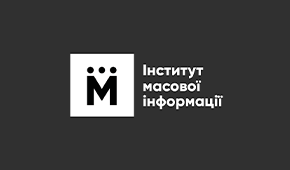Verkhovna Rada asks MFA to clear up reasons for URC2025 denial of accreditation to Ukrainian journalists

Photo by urc-international.com
The Verkhovna Rada Committee on Humanitarian and Information Policy has decided to address Ukraine's Ministry of Foreign Affairs with a request to clear up the reasons for Ukrainian journalists being refused accreditation for attending the Ukraine Recovery Conference 2025 (URC2025), which took place on July 10–11 in Rome (Italy).
The Committee unanimously voted for the decision at the July 15 meeting, Detector Media reports.
The Committee's discussion of the issue was sparked by the URC2025 having denied accreditation to Maria Hurska, journalist and director of the Ukraine branch (Slawa TV) of the Polish national broadcaster's international broadcasting service.
The conference was co-organized by Ukraine and Italy. The Committee members condemn any arbitrary restrictions on Ukrainian journalists' access to international events pertaining to Ukraine's future, co-organized by Ukrainian authorities.
The Committee asked the Ministry of Foreign Affairs to:
- share information on the URC2025 accreditation procedure for Ukrainian journalists;
- name the final decision-maker granting/denying accreditation to Ukrainian journalists for the event;
- explanain the official grounds for granting/denying accreditation for the event to Ukrainian journalist, citizen of Ukraine Maria Hurska.
The journalists were accredited by the Ministry of Foreign Affairs in cooperation with Italy. The lists were submitted by the media outlets' countries of registration, but the lists of journalists were approved by the MFAs of the journalists' countries of citizenship through the embassies, which means that it was Ukraine's MFA making the decision on accrediting Ukrainian journalists.
The Committee on Humanitarian and Information Policy learned that Poland had applied for Maria Hurska's accreditation to work in Rome, but she was barred from participating in the conference due to the lack of approval from the Ukrainian side. The journalist did not hear the official grounds for the denial of accreditation.
Mykola Kniazhytskyi, Committee member and chair of the culture subcommittee, says that with no reasons provided, the characterizes Ukraine negatively in the eyes of international partners both from Italy and Poland.
Viktoria Lyalina-Boyko, director of the MFA's Public Diplomacy and Communications Department, said that they had already processed the situation. According to her, the Ministry of Foreign Affairs' role in granting accreditation was not decisive, but purely technical. The Ministry formed two lists: that of Ukrainian journalists and that of foreign ones. The MFA submitted the lists to the Italian side. Some journalists were denied accreditation with no explanation. The final decision was up to the organizing committee and security services. The Ministry of Foreign Affairs is ready to process the Committee's address upon receiving it.
“The Ministry's priority was to filter, to prevent Russian journalists from attending a high-profile Ukrainian event. The Italian side wanted to introduce an additional document for the accreditation: a recommendation to each media outlet. But thanks to the efforts of the Embassy of Ukraine in Italy, this additional element was 'knocked down', which streamlined the accreditation of media outlets significantly,” she said.
Committee Chair Mykyta Poturayev said that the situation was unacceptable.
“The news outlet created by Polish partners is working fully in Ukraine's interests, and we must do everything we can to help them do so without hindrance. I ask you to provide instructions to our embassies. Because our Ukrainian citizens are starting to work in foreign media outlets. Poland is the first major successful project. Such situations may arise again. So I ask you to provide us with a detailed response to our address,” he said.
The Committee also advised the Ministry of Foreign Affairs and the Ministry of Culture and Strategic Communications to take this information into account in their further work and improve the procedure of accrediting Ukrainian journalists, in particular those representing foreign media outlets, to events of international importance organized and/or co-organized by Ukraine.
As reported earlier, Maria Hurska of the Ukraine branch (Slawa TV) of the Polish public broadcaster TVP World, was denied accreditation to participate in the Ukraine Recovery Conference 2025.
Journalists from the Lviv-based media outlet Tvoye Misto were also barred from attending the conference. According to the media outlet's director, Taras Yatsenko, the journalists had been accredited, but were denied entry to the event due to the lack of a verbal note from the Embassy of Ukraine in Italy.
Help us be even more cool!

